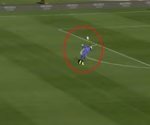
Dozens of Bosnians were reportedly deported from Croatia for being a threat to the country’s national security and were never officially told why. They, however, claim it was because they refused to cooperate with Croatia’s secret service in an alleged plot against Bosnia.
Some of them told N1 their stories.
Among them is Sabahudin Jasarevic, who lives in the northeastern town of Gracanica. He used to work as a welder in Croatia for 12 years and said that he never committed a crime throughout his stay there.
Jasarevic presented to N1 a document dated October 2018 which says he was never convicted for anything in Bosnia either.
After so many years working in Croatia, he said he was suddenly summoned for questioning by Croatian secret service officers.
“They were mostly interested in the conflict between the Army of the Republic of Bosnia and Herzegovina (ARBiH) and the Croatian Defence Council (HVO),” Jasarevic said.
“Since I was a member of ARBiH, they asked me if I participated in fightings with the HVO and where. They were interested in ‘bearded guys and covered women’ in Bosnia and Herzegovina and their movements,” he said, adding that he was coerced into providing the officials with a list of his wartime fellow soldiers.
But Jasarevic said that, after he refused to cooperate with the SOA, he was served with a document saying that he is being deported from Croatia.
Six months later, Jasarevic is still unemployed and lives with his retired father, his disabled wife, and his daughter, who is a student. Their only income the father’s pension.
Jasarevic told N1 that he sought help from Bosnian institutions, such as the Ministry for Veterans’ Affairs, but to no avail.
He said he now goes around visiting Bosnian companies and looking for work. But with Bosnia’s high unemployment rate, chances for finding a job are bleak.
“They never explained to me why I was a threat to national security and public health in the Republic of Croatia. Never,” the distraught man said.
These statements come in light of a diplomatic spat which emerged when investigative journalists revealed that Croatia’s intelligence was allegedly trying to recruit Bosnian Muslims to transport weapons to central Bosnia and establish contacts with ISIS in order to portray Bosnia as a terrorist hub.
According to some of those who claim they were approached, Croatia used threats and blackmail to make them cooperate.
One of the threats was loosing their working licence in Croatia and being deported.
Croatia has denied all allegations but the affair has seriously strained the relationship between the two countries.
The Bosnian investigative news outlet ‘Zurnal’ that broke the story also published what it claimed to be interviews with Bosnians who described how SOA tried to recruit them and make them create social media accounts in which they would praise the Islamic State.
Bosnia’s Security Minister, Dragan Mektic, confirmed Zurnal’s allegations, saying that he has documented data proving them.
According to the Minister, the plan was for the weapons to be found following a tip-off. Mektic said the goal was to prove earlier statements by Croatian President Kolinda Grabar-Kitarovic, who said Bosnia was a hub for terrorists, as true.
Croatian officials, including Prime Minister Andrej Plenkovic, called the allegations “nonsense.”
But others, apart from Jasarevic, had similar stories to tell.
Some 20 kilometres away, in the village of Mehurici, near Travnik, two locals, Semir Aganovic and Nermin Spahic, also said they were declared a threat to Croatia’s national security after refusing to cooperate with SOA.
“I worked in Croatia for 18 years. I was summoned to the police station in Zadar at least ten times. They called me up to seven times a day. They would ask me whether I was going to the mosque, what I think about ISIS, and if there are any ‘bearded guys’. They asked me about the war,” Spahic said.
He too was allegedly never told why he was declared a threat to Croatia’s national security.
“I expected that there would be a diplomatic protest note coming from Bosnia, but it seems that in Bosnia, nobody has the competencies to do anything. I was banned from entering the Republic of Croatia for ten years,” he said.
Aganovic said he was only summoned for questioning once and immediately became a ‘threat’ after that.
“They asked me whether I was going to the mosque and what I did during the war. They asked me if there were a lot of mosques in Bosnia and Herzegovina.” he said.
Aganovic explained that, after the questioning, he went to do a health check required for his employment. But the person examining him was told to stop the evaluation because he will be deported, he said.
“After that, I was banned from entering Croatia for three years,” Aganovic added.
Jasarevic told N1 that he knows of at least ten people who share a similar fate. He said he was informed that people in the company he used to work for in Croatia speak about him as a deported war criminal.
“I want to publically clear my name,” Jasarevic said, adding that he is a man who “never hated anyone, even spread friendship and some kind of love.”
“It all broke over my back, many people know me, they know who and what I am, that I am not a terrorist nor a war criminal,” he insisted.
All the people who N1 spoke to agreed that they are the collateral damage of a political game. Some of them are out of work for months already, while others are finding ways to get by.
They also said they are available to any institution for any kind of background check.
Kakvo je tvoje mišljenje o ovome?
Učestvuj u diskusiji ili pročitaj komentare





 Srbija
Srbija
 Hrvatska
Hrvatska
 Slovenija
Slovenija



























































